Building a Pathway for Diversity in STEM Education
Increasing diversity in engineering and technology is a key initiative at Stony Brook University. Fotis Sotiropoulos, Dean of the College of Engineering and Applied Sciences, highlighted these efforts during his recent ‘State of the College’ address. As one example of the progress made over the past several years, the percentage of women enrolled in the College of Engineering and Applied Sciences has increased from 20% to 25%, well above the national average.
“The programs we have in place targeting K-12 students in high-needs schools, as well as undergraduate and graduate students at Stony Brook, are key building blocks in constructing a diversity pathway in STEM,” states Dean Sotiropoulos. “Embracing a variety of backgrounds, ideas and perspectives makes our College stronger and fuels the innovation pipeline in today’s science and technology-driven economy.”
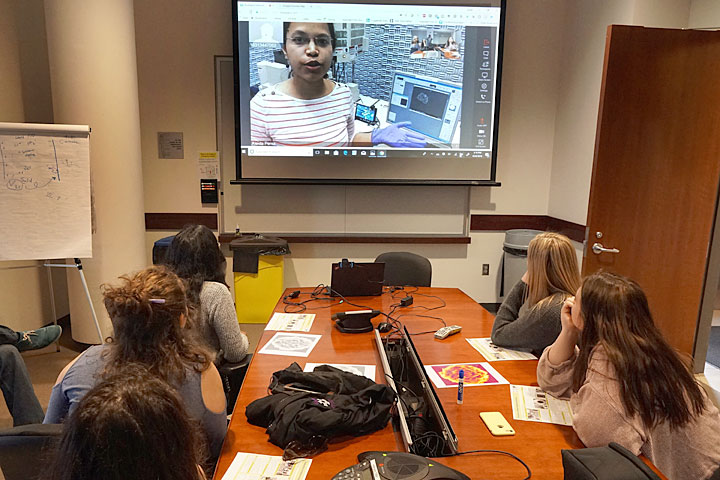 |
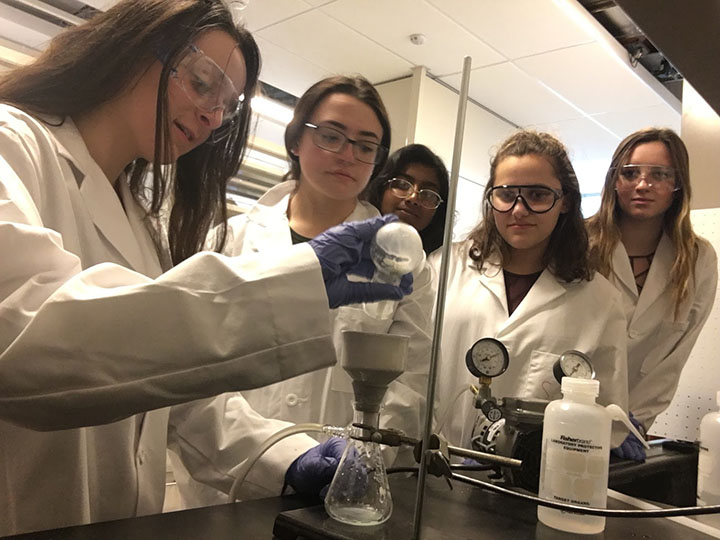 |
Women in Science and Engineering (WISE) Honors
A program that has been very successful in helping to raise the percentage of women in STEM disciplines at Stony Brook is the Women in Science and Engineering (WISE) Honors program. WISE Honors seeks to increase the number of women in science, math and engineering fields through outreach, recruitment and retention efforts. The focus is on the importance of mentoring younger students to help build their competence and confidence.
“Our program presents an opportunity to expose young women to STEM that they don’t get at their middle schools or high schools,” according to Monica Bugallo, Professor of Electrical and Computer Engineering and Director of WISE Honors. “Another very important benefit is it allows participants to spend time with role models who demonstrate what it is possible to achieve on this career path.”
WISE is a pioneering program that has been in operation for more than twenty years and involves over 100 high school and 60-80 middle school students from seven school districts on Long Island in a variety of hands-on projects each year. Among these programs are fall and spring on-campus research projects at Stony Brook for high school women and a one- to two-week on-campus summer camp for middle schoolers. “Hands-on research in a variety of disciplines and in a collaborative environment is a hallmark of WISE and a big reason it has been so successful in attracting women to STEM careers,’ says Professor Bugallo.
Science and Technology Entry Program (STEP)
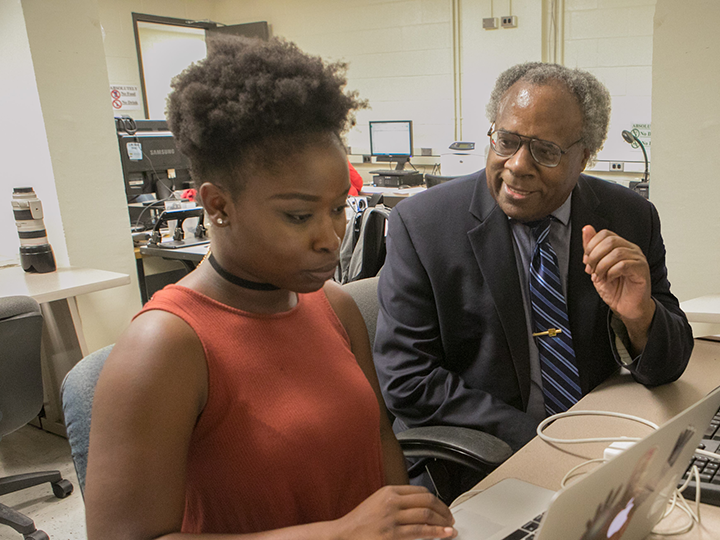 ‘Collaboration’ is a key concept for CEAS diversity outreach programs. David Ferguson,
Distinguished Service Professor in Technology and Society and Provostial Scholar for
Diversity and Innovation, states emphatically that, “Exposing diverse, pre-college
populations to college level courses and the collaborative tools essential for success
is a critical piece in increasing the overall diversity in STEM.”
‘Collaboration’ is a key concept for CEAS diversity outreach programs. David Ferguson,
Distinguished Service Professor in Technology and Society and Provostial Scholar for
Diversity and Innovation, states emphatically that, “Exposing diverse, pre-college
populations to college level courses and the collaborative tools essential for success
is a critical piece in increasing the overall diversity in STEM.”
One of the programs Professor Ferguson oversees is the Science and Technology Entry Program (STEP). STEP focuses on building STEM communities to encourage underrepresented minorities and economically disadvantaged populations to enter science, technology and health-related fields.
This is done through an array of programs and services. In addition to offering weekend experiences at Stony Brook and a five-week summer program for high school students and recent grads preparing for college, STEP also offers psychological and social support to keep participants engaged and on-track. This support includes communications training in effective writing and speaking.
“Teaching collaborative solving of non-routine problems is a critical component of STEP. It gives participants exposure to idea-sharing, independent analysis and engenders a real sense of accomplishment,” says Ferguson.
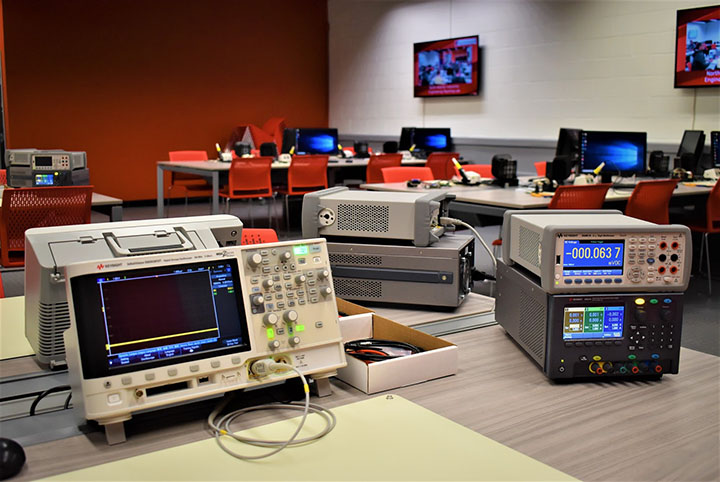 |
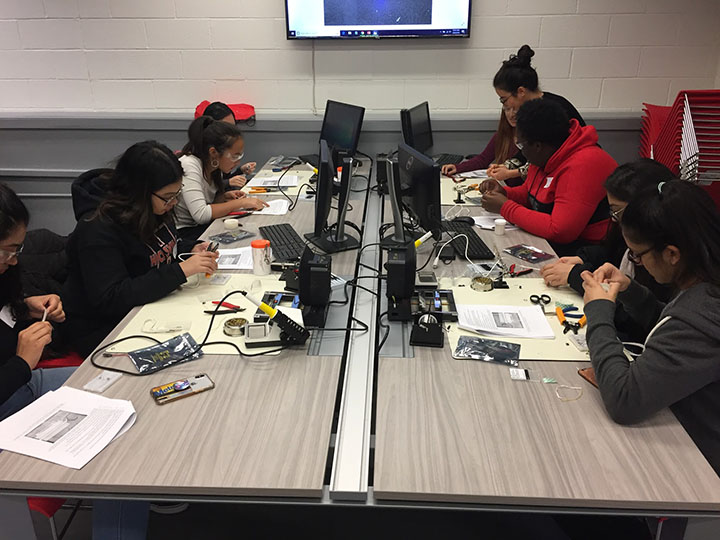 |
Accelerated College Education (ACE)
Another program within the College of Engineering and Applied Sciences that emphasizes collaboration is the STEM track of Accelerated College Education (ACE) at Stony Brook. ACE provides students with the academic challenges of a college-level curriculum within a high school setting and allows students to earn college credits. While ACE is open to everyone who qualifies, women and underrepresented minorities make up over 50% of the participants according to Al Pisano, Adjunct Professor in the Department of Technology and Society, part of the College of Engineering and Applied Sciences.
“Two important aspects of the STEM ACE program are exposure to the collaborative tools essential to design thinking and getting students from diverse populations comfortable working and achieving in group settings,” says Pisano.
Pisano also coordinates a program for high school students that teaches them how to manage their personal brands online. This consists of working with them to ensure their online presence on social media platforms is effective in showing them in the most positive way and minimizing the potential negatives.
The recently opened North Atlantic Industries Engineering Teaching Lab in the Department of Electrical and Computer Engineering will give middle and high school students hands-on experience with state-of-the-art
equipment.
-Dick Wolfe
Editor's Note: Since this story was published Distinguished Professor David Ferguson passed away on July 12, 2019. His legacy lives on in the STEM and diversity programs he created to serve CEAS students and the entire Stony Brook University community.
